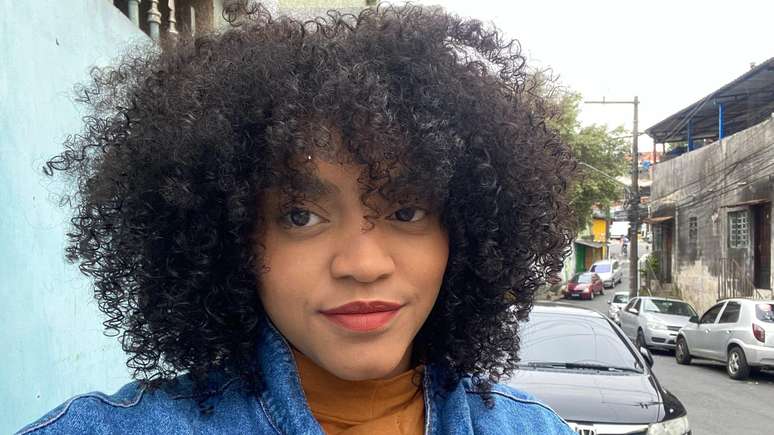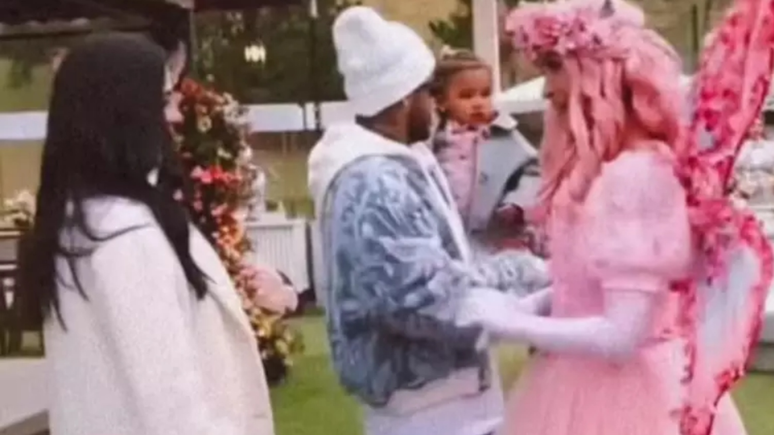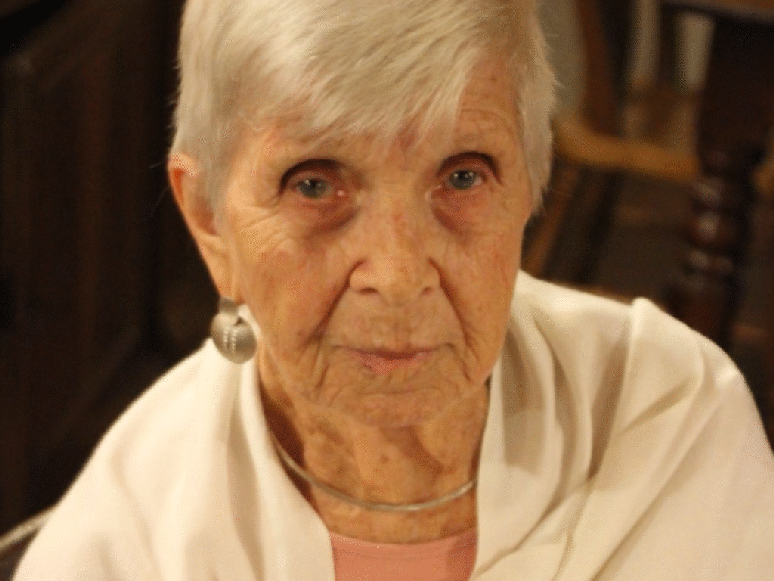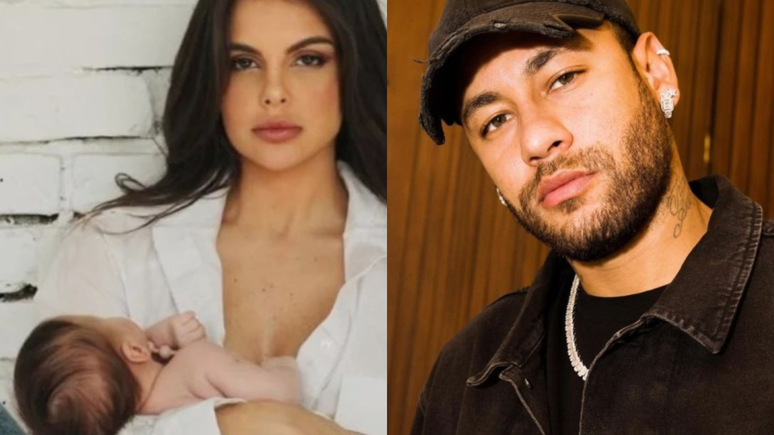Paloma Macedo, 29, is one of many young black women who, in recent years in Brazil, have abandoned heavy chemical treatments to straighten their hair in favor of the so-called “hair transition”. Read the report at BBC News Brasil.
“I remember the feeling when I left the salon, when I looked at myself in the mirror. I saw myself in the glass doors, I felt so beautiful! Seriously. I feel like I’ve come back from who knows where, I don’t know how to explain it. And I didn’t know my hair. Then I learned to comb it according to its texture, I started cutting it, fixing it, moisturizing it, braiding it.
Project analyst Paloma Macedo, 29, is one of many young black women who, in recent years in Brazil, have abandoned heavy chemical treatments to straighten their hair in favor of so-called “hair transition,” meaning they are choosing to have natural curls.
In Paloma’s case, the transition also brought what she calls “racial literacy,” that is, a greater awareness of her own race and of racism in Brazilian society.
In a statement to BBC News Brasil, Paloma shares her transition and talks about concepts like racial literacy, “afrosurge” and “big chop.”
“I hated my hair”
“When I was little I hated my hair. First of all because I’m the youngest sister and my hair is frizzy, it’s already curly at the root. And my sister, who is older, has curly hair. She has straighter roots. and the curls very loose. Her hair has always been the most beautiful in my family because the rest of my family is all curly, so the hair was very desired and not the same as yours sister?'”
Paloma says that, unhappy with her hair, she started asking her mother to dye her hair blonde (she explains that she was a fan of Carla Perez) or asking for hair like her sister’s. The mother tried to please her daughter.
“So I started using chemicals when I was four because I hated my hair.”
‘My concept of beauty was white’
At the age of 15, Paloma began using so-called progressive brushing, a chemical treatment that leaves her hair straight. The only thing she had to worry about, she says, was her roots, which needed to be touched up every two or three months.
He says there was no racial literacy at that time. “I had no idea about racism. I knew there was prejudice, but in my house it was never an issue. ‘Oh, you hate your hair because of racism’.”
“My concept of beauty was completely white. I’ll show you some photos of when I had straight hair and you’ll see that I’m whiter,” she says. “He was unconscious.”
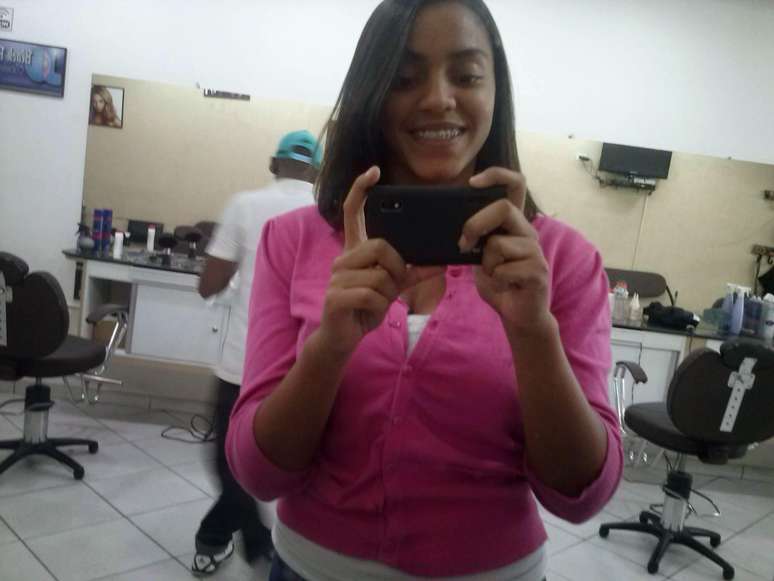
Hair transition, “big shot,” and racism
At age 21, leaving college still without a job and embarrassed by the high cost of the hair treatments and creams her mother paid for her, Paloma says she decided to begin her transition.
A decision that, she knew, would transform her life.
“I started looking for videos on YouTube to texturize my hair. Through these videos, I learned that I was going through a hair transition. I saw several girls talking about the big chop (in English translation, the big cut) or when you cut your hair very short.”
She continues: “And I started watching videos where people started talking about racism, racial prejudice and the relationship with our hair.”
Without straightening it, Paloma says, her hair began to become naturally frizzy. The ends remained smooth. After about six months of letting it grow, there was no way to comb it anymore. It was horrible. I said, I’m going to the salon. I’m going to do this ‘big cut’ thing.”
Paloma explains that at that point, around 2015, there were already several salons specializing in Afro hair, something that had been difficult to find years before.
“I was scared to death, I didn’t know what to expect. I went alone because I wouldn’t support someone else laughing at me. I went alone because I was afraid of the outcome.”
“I did it. I cut it really short. I left feeling beautiful. Beautiful!”
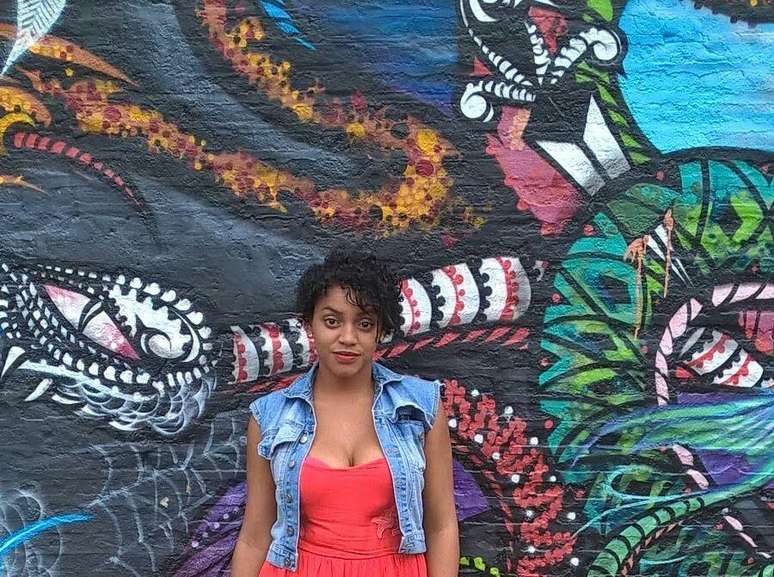
“Will they accept my hair?”
Paloma recalls that she was working in a telemarketing company at the time: in her opinion, a very different environment.
“It’s an environment that will welcome gays, trans, blacks, whites, golden people,” he explains.
That’s when he decided to apply for another job. It would be the first time I attended an interview with curly hair. “And I remember saying, ‘Mom, what if I don’t pass because of my hair?’”
At that moment I realized he was talking about racism, he comments. “Will they accept my hair like this? And this, when I had it straightened, had never crossed my mind.”
Paloma says she interviewed, got the job and never had any problems. On the contrary.
“The company opened a center where we talked about diversity and corporate racism. It was a place where I learned a lot.”
Around the same time, he says, he went to college to study geography.
Racial literacy, hair, and self-esteem
“I began to learn what racism was, what the system was, what mass culture was. I began to understand the historical process in Brazil, I went all the way into racial literacy. I understood my pain and the parts where my hair and my self-esteem came.”
Meanwhile his hair has grown.
“It was huge,” he recalls. “I started shaving, I shaved everything. Everything I could do with my hair, I did. I moved away from that idea ‘ah, if I do it like this, I’ll look ugly’. My beauty, as a woman , it wasn’t just my hair.”
Black and white dolls
In 2022, she says, she got pregnant and had her daughter. “She’s grown and her hair is curlier now,” he says. “But I already know how to comb it because my hair is similar,” she explains.
“And today we have the resources to comb this type of hair, we have baby cream, we have a specific salon. So I know that my daughter will have a different relationship with her hair.”
“I’m looking for more black references for her. She has a lot of black dolls, she has white dolls. I want her to understand that having curly hair is just as beautiful as having straight hair. And that if one day she wants to straighten it, straighten it knowing that she’s beautiful even with hair curls.”
For Paloma, straightening her hair is not a problem.
“The problem is straightening your hair because you hate your hair, because you hate looking at yourself in the mirror. That’s the problem. It’s a hatred we create against ourselves.”
Paloma says that, for her, transitioning her hair has brought empowerment. She combs her hair herself and, when she goes to weddings, for example, she doesn’t need to go to the hairdresser.
“There’s this, that you feel self-sufficient. The only thing I still contract out is braiding and cutting hair.”
Today, she says, she chooses her hairstyle based on the message she wants to convey. “If I don’t want to make an impact, I’ll tie my hair up.”
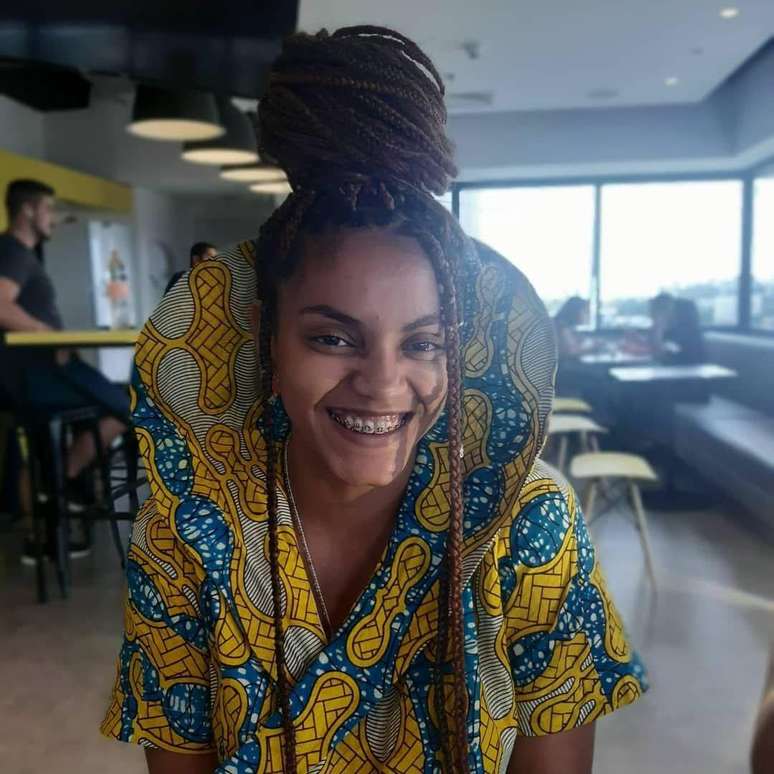
Afro-epidemic
“When I want to make an impact, I go with the black hair, up there.”
The hair transition and the racial literacy that comes with it, however, also came at an emotional cost for Paloma.
The anger he felt now turns outward.
Here he introduces a concept coined by the writer and professor of African literature at the Pontifical Catholic University (PUC) of Rio de Janeiro Aza Njeri: afrooutbreak.
In the words of the academic, the Afro epidemic is a “psychic illness resulting from the clarity acquired by blacks in the process of becoming racially aware.”
Paloma says: “You become more knowledgeable and understand. And I think for a moment I went through a process of anguish. A penny drops on your head. You start to have flashes of scenes and think: wow, that was racism.”
“It really makes you angry. And when you’re in the military, you say, ‘this is racism’. I understood that term well after going through it. That’s a high you have.”
‘A path away from pain’
For her daughter Paloma she expects a lighter experience. “Because she’ll grow up knowing she’s black, with black references. Nowadays we have cartoons that feature black kids with curly hair,” she says.
Paloma doesn’t think she will be able to protect her daughter from racism, “but she will grow up with self-esteem, she will grow up with information, knowing what Brazil’s trial was and why people are racist.”
“I feel like it’s going to be completely different for her than it was for me. We’ve created a path away from the pain.”
And does Paloma believe that her journey has been a journey of pain?
“I feel it,” he replies. And he entrusts to BBC News Brasil an episode recorded in his memory that perhaps gives us a small measure of the dimension of this pain.
“The most obvious thing was one day when I was going to a show with some friends,” he recalls. “It was late at night, the three of us were black. A car full of playboys passed and someone shouted: ‘monkeys!’ I think it was the least veiled because that’s how it is, we live in different veiled situations.”
Paloma says if this happens to her daughter, she doesn’t want her to be ashamed of being black.
“I want him to understand that the one who should be ashamed is the one who is racist,” he says.
“In my mind, and I hope it works, it will be with less pain.”
Source: Terra
Ben Stock is a lifestyle journalist and author at Gossipify. He writes about topics such as health, wellness, travel, food and home decor. He provides practical advice and inspiration to improve well-being, keeps readers up to date with latest lifestyle news and trends, known for his engaging writing style, in-depth analysis and unique perspectives.

